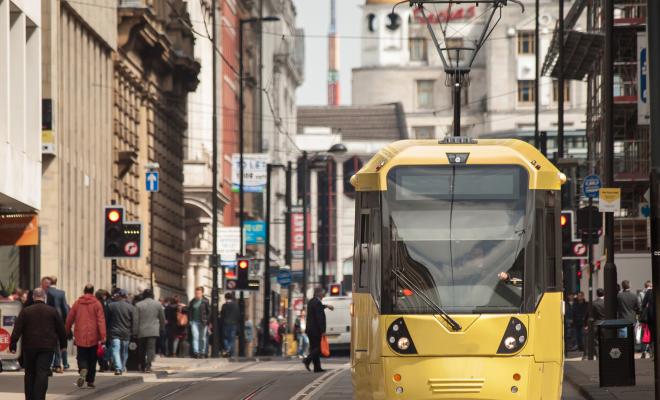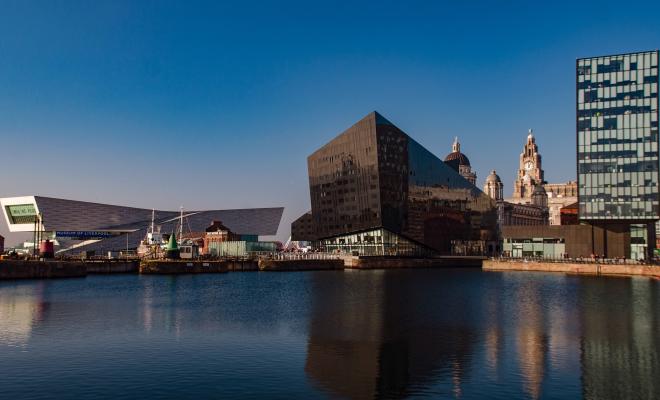20 Sep 2024
How is Action 25 taking on the climate crisis?
Councils need to play their part in the transition to electric vehicles – converting their own fleet is a great way to start. Leeds has the largest electric vehicle fleet of any local authority in the UK. Their goal is to procure only Ultra Low Emission Vehicles by 2030.
The Leeds journey:
- 2015/16 the council started its transition planning
- 2017 the council won an Energy Saving Trust Fleet Hero Award
- 2018 home charging pilot scheme for employees with exclusive use of council-owned vehicles
- 2021 currently 335 electric vehicles in operation, 119 depot charging points, 95 chargers in employees’ homes.
In 2021/22, the council is also starting the transition of its refuse collection fleet, with a new waste depot in development that will house 50 electric refuse collection vehicles.
Leeds isn’t limiting its ambition to vehicles directly owned by the council. The authority is also tackling emissions from its "grey fleet", staff-owned vehicles used to carry out council services. It's estimated that grey fleet mileage contributes an extra 1,262 tonnes of CO2 emissions per year in the city which is why Leeds is encouraging uptake of cleaner vehicles in its grey fleet.
Finally, the council has also developed an electric vehicle trials service alongside Highways England, enabling local businesses to try an electric vehicle free for one to two months.
What impact has the project had?
Carbon emission impacts
Between 2018 and 2025, the council’s switch to electric vehicles is expected to save at least 1,274 tonnes of CO2 emissions. This equates to at least 235 tonnes of emissions saved across the entire fleet every year.
Influencing others
Carbon savings aside, the council has created a positive reputation and sophisticated institutional expertise on electric vehicles, providing a best practice approach for anyone looking to transition to electric vehicles.
The electrification of its own fleet has given the council a springboard to encourage the public and businesses to get behind electric vehicles.
- The electric vehicle trials service has completed 150 trials with over 250,000 miles driven with zero emissions
- Each vehicle is equipped with a device that gathers journey data to demonstrate to users the environmental and financial benefits of choosing electric vehicles
- The vast majority (97%) of people taking part said they would recommend the trials scheme to others and 75% said their opinion of electric vehicles had changed for the better
- Harewood House country estate switched to electric for its groundskeeping vehicles following a trial
- The council has used its expertise and influence to transform Leeds’ taxi and private hire fleets, which are now over 50% petrol-hybrid or cleaner
- The council offers free parking at any of its car parks to any Leeds citizens with their own private electric vehicle, and the installation of more charging points across the city also makes it easier for drivers to go electric.
- Leeds has witnessed a higher than national average uptake in electric vehicles as a result. Department for Transport and DVLA data show that the number of low emission vehicle registrations in Leeds doubled during 2021
What made this work?
Being proactive about opportunities and partnerships
Leeds has a good track record of taking up opportunities to reduce the impacts of its own fleet. It first worked with the Energy Saving Trust on a green fleet review in 2007. A year later it collaborated with the Department for Transport to pioneer Compressed Natural Gas (CNG) refuse vehicles.
The council proactively capitalised on all available opportunities for funding, partnerships, and profile-raising. In 2021, Leeds partnered with the Energy Saving Trust again to develop a road map for the transition of its vehicle fleet.
For example, the council signed up to the National Clean Van commitment, whose signatories promised to collectively invest £40m in electric vans between 2018 and 2020. Dynamic partnerships with Nissan, Renault, Toyota, Mercedes and Peugeot have allowed the council to work the market for best value, obtaining competitive pricing by procuring at scale. Highways England and the West Yorkshire Combined Authority have also been cooperative partners.
The business case works
Leeds has carved out a convincing business case for the expansion of electric vehicles, based on lower emissions, cheaper fuel and lower maintenance costs. A shift in procurement procedure at the council has made electric vehicles the default option. Although electric vehicles have a higher upfront cost compared to petrol and diesel equivalents, the cheaper running costs of going electric over the extended lifecycle of the vehicle cancel out the higher retail price.
Electric vehicles are a net money saver, with the added benefit of reducing carbon, nitrous oxide (NOx) and particulate matter emissions.
Support from council leaders
Top level buy-in from the council’s executive leadership team was vital. Early support from the Director of Resources helped tackle misconceptions when it came to understanding how electric vehicles can be used operationally, establishing knowledge about the practical, economic and environmental benefits of electric vehicles across different council services. The Director has authority over fleet purchases and insists that zero-emission vehicles are purchased unless there are significant barriers.
What resources were needed?
Between 2018 and 2020 Leeds City Council invested over £5m into fleet electrification. A further £2.5m will be invested up to 2023.
Leeds City Council has been keen to put resources behind its Climate Emergency measures. Electrification has largely been funded through the council’s own resources and budgeting, although it has also taken advantage of external funding opportunities:
- Leeds took part in West Yorkshire Combined Authority’s successful 2018 bid for £1.9m of Office for Low Emissions Vehicles funding. Leeds’ portion of this funding was used to establish 36 charging points.
- In March of the same year, Leeds was awarded £340k of Clean Air Zones Early Measures funding by the government, which paid for further charging sites.
- Highways England provided £2m towards the electric vehicle trials service, with input from the Department for Environment, Food & Rural Affairs, too.
- Leeds is also utilising funding from the government’s On-Street Residential Chargepoint Scheme to deliver multiple charging units at six locations in 2021 and a further 12 sites in 2022.
To transition its fleet the council had to overhaul its existing procurement set-up. Previously, individual services had managed the purchase of their own vehicles. Now, this is done at a whole- fleet level, with each new electric vehicle purchase signed off by the council’s Director of Resources. Fleet services have worked closely with the council’s 30-member Sustainable Energy and Air Quality team to make the transition possible.
Lessons from Leeds
There are several things to consider when procuring a fleet of electric vehicles at scale for a variety of council uses. Leeds found advanced planning was key to addressing the challenges of obtaining the right vehicles and infrastructure.
The right vehicles
Extended range and rapid charge are the essential criteria for vehicles. The lack of market maturity and therefore supply can be limiting factors; depending on the type of vehicle, there may be limited or no availability, especially as electric vehicle technology is continually evolving. Moreover, vehicles available on the market may not have the range to undertake daily council duties. Larger fleets with more specialist vehicles may find procurement trickier. In an emerging market, delays may slow the pace of a replacement programme.
The right infrastructure
Councils must also address the comprehensive infrastructure needed to support electric vehicles. Due to the current low demand for electric vehicle charging points, they tend to require a long supply period agreement to ensure profitability. Determining where to situate charge points is crucial and installation is complex, involving leasing, financing, legal matters, plus input from highways and parking enforcement.
How Leeds used advanced planning
Following Leeds’ example, the best way to manage these potential issues is through logical advanced planning. Leeds used a survey as a basic starting point in 2015, assessing the existing fleet, van size, and mileage range. The council began with the replacement of small, low-mileage vans (averaging 70-80 miles per day) because the electric market for such vehicles was well developed. The market for these smaller vehicles has rapidly developed since Leeds began its electrification journey, making it far easier for other councils to begin transitioning their own fleets.
The council conducted surveys of where vehicles were housed overnight (and where chargers and power supply upgrades would therefore be needed). The council decided to install charging infrastructure largely on its own sites in order to make it publicly accessible. Ensuring planning policies require new developments to include charging point provision has been another useful tool.
“We want to be an exemplar as a council, showing that electric vehicles work in practical terms. We have housing repairs, highway engineers, food delivery, parking enforcement, all kinds of teams using these vehicles. They work and they are popular.”
Andy Hickford, Sustainable Energy and Air Quality Project Manager at Leeds City Council.
Useful information
To find out more about Leeds’ electric vehicles, contact Andy Hickford.
As a result of more vehicle-owners switching to electric vehicles than expected, Leeds City Council's planned Clean Air Zone may not be needed, as reported by the council.
Related projects
We've found some examples of other council activity on this topic.
- Swale Borough Council has replaced its fleet of diesel vans with 9 new electric vans.
- 30% of Nottingham City Council’s vehicle fleet is electric, including bin lorries and street sweepers.
Friends of the Earth's view
Cutting emissions from their own transport operations is a must for all councils. Leeds City Council has made impressive progress in switching its fleet to electric vehicles drawing on a variety of government grants as well as its own resources. Importantly it’s also influencing others to make the transition.
Electric Vehicles are only part of the solution though. Councils must also invest in public transport, walking and cycling, and introduce measures to discourage car use (Actions 21 and 23 of the Climate Action Plan).
Friends of the Earth is showcasing specific examples of good practice in tackling climate change, but that doesn’t mean we endorse everything that a council is doing.
This case study was produced by Ashden and Friends of the Earth. It was originally published in May 2022. The council was approached for an update in June 2023; no update was provided. Any references to national policy in this case study relate to policy under the previous government and reflect the policy context in which the council was operating at the time.




